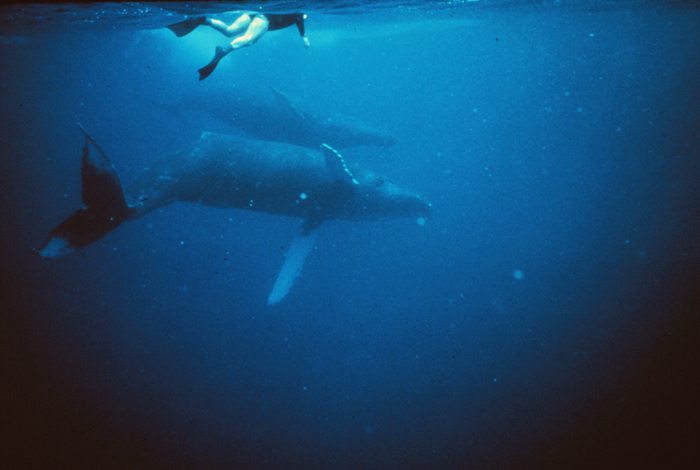Yesterday was World Oceans Day, a fitting time to reflect on the incredible amounts of human-caused noise in the ocean recently. Shipping barges create noise and vibrations that travel thousands of miles under the sea. Sonar, used by the US Navy, blasts the ocean over and over again with high pitched frequencies. And lastly, airgun blasting, which is used to find oil deposits offshore, is like an underwater bomb that gets set off every 10 seconds for weeks or months at a time.
All of this noise affects whales and dolphins’ ability to get food and communicate. Whale calves often get separated from their mothers when communication is disrupted by these noises, effectively resulting in a dead whale calf. Several cases have been documented in which the beaching of whales was caused by hemorrhaging near the brain-- a result of airgun blasting, sonar use, and shipping noise. Whales have such long lives that they’re exposed to these sort of practices over decades.
To highlight the importance of reducing ocean noise and inspire action, members of congress and the Discovery Channel hosted a screening of the film Sonic Sea in the Capitol Visitor Center. Representative Debbie Dingell spoke about how important it is to act to limit new noise in our oceans..
The Sierra Club is in full agreement and has called upon the Bureau of Ocean Energy Management (BOEM) to end seismic testing as part of its five-year offshore drilling plan. The five-year plan is drawn up by BOEM every five years and governs the leasing for oil and gas drilling in the ocean’s outer continental shelf. This document has the power to drastically change how we produce energy in our oceans. BOEM has the power to end seismic testing in American waters in the 2017 - 2022 five year plan.
Thankfully there is hope for our ocean mammals. As stressed in the film, the march of progress and time is constantly bringing new innovation and technology to the field. Scientists have been finding new, creative ways to help mitigate the effects of these practices. Newer shipping barges, with new and updated technology, are much less noisy. On the policy side, the National Oceanic and Atmospheric Administration’s roadmap on oceanic noise released last week is a very ambitious and hopeful plan for the future. Additionally as can be seen through the hosts of this event, there are Representatives and Senators in congress who are working to reduce these destructive practices.
Learn more about the film, watch the trailer, and find or host a screening at www.sonicsea.org.
